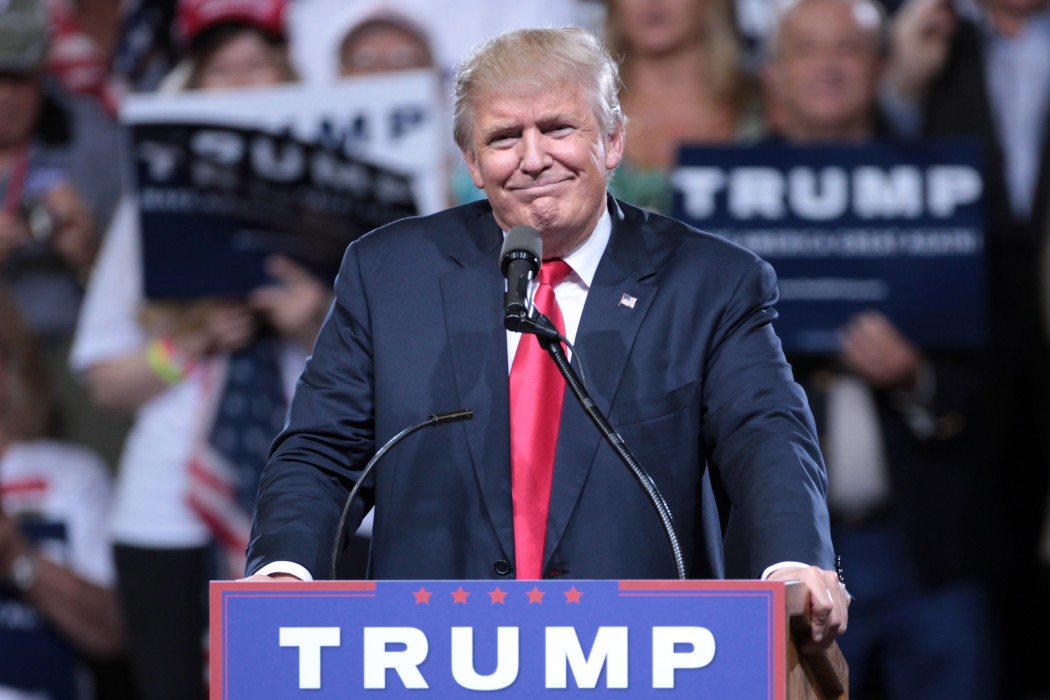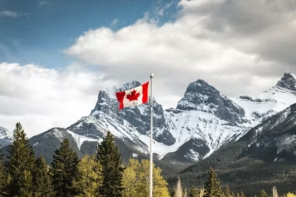On November 8th, 2016, Donald Trump was elected to be the next president of the United States. What followed was a media maelstrom. Yet of all the topics harped on by the press in the weeks after the election, Donald Trump’s fervour for pollution seems to be a crowd favourite. Almost every media outlet agrees: Trump is bad news for the environment.
Though there is still much uncertainty regarding Trump’s policy goals in office, his distaste for environmentalism has been consistent since the day he launched his campaign. In a famous 2012 Twitter post, he proclaimed global warming to be a hoax created by the Chinese to constrain the United States (US) manufacturing industry. Again in 2014, he wrote that, “this very expensive GLOBAL WARMING bullshit has got to stop.” Aside from these two particularly revealing incidents, Trump has claimed countless times that stray cases of cold weather are proof against rising average temperatures.
Trump’s appointment of Myron Ebell to lead his EPA transition team further indicates his total rejection of conventional environmental concerns. A notorious climate-change skeptic, Ebell is currently the director of the Competitive Enterprise Institute’s Center for Energy and Environment, a conservative think tank funded by ExxonMobil. While there is certainly room to balance environmental concerns with “competitive enterprise,” Ebell seems to be much more focused on outright climate change denial, even speaking before Congress to this regard. Another indication that, for Trump and his administration, the economy takes clear priority over the environment.
Critics on both sides of the political spectrum would argue that such shortsighted thinking is wrong, ignorant, and dangerous. Wrong, because it runs contrary to the advice of countless scientists, world leaders, and defence officials regarding the risks posed by global warming, and the involvement of mankind. Ignorant, because it disregards the clear impact that greenhouse gas emissions have already made, including loss of arctic ice, ocean acidification, and rising global temperatures. Dangerous, because it does nothing to protect against the possibly catastrophic effects that the carbon emissions of today will bring in 20, 50, or 100 years.
Indeed, there is a stark urgency to combatting climate change. Scientists estimate that without an enormous, and immediate, reduction in greenhouse gas emissions, the Earth may be up to 11 degrees Fahrenheit (six degrees Celsius) warmer by 2100. This could have devastating runaway effects on an already delicate climate. Trump, who has made the economy his number one priority, must surely realize the economic downturn that such changes would bring. Widespread drought is certainly an option, along with noticeably higher sea levels, destruction of critical ecosystems, and even a global ice age.
Many politicians are calling for an immediate and overwhelming response to the threat of global warming. Yet Trump, and the many Americans who voted for him, seem happy to look the other way. Trump has poised himself to be the champion of those hurt by the realities of climate change: coal workers, oil and gas companies, and manufacturers upset with the high cost of regulation. His efforts to appease them may have vast effects on global climate security.
At the bare minimum, Trump will surely expand American drilling and fracking operations over the next four years. His fascination with economic growth, coupled with his clear skepticism of global warming, point firmly in this direction. Scaling back environmental regulations and CO2 abatement goals will, without doubt, be part of the equation. Some of the President-Elect’s first-day promises are: ending the “war on coal,” fast tracking the Keystone XL Pipeline, and stopping US funding to the UN Climate Change Program.
Beyond these first steps, there remains further room for Trump to displace pro-environment policies in favour of economic growth. He will likely repeal President Obama’s Climate Action Plan, which commits to cutting US emissions, preparing for widespread climate change, and leading global efforts to address global warming. He could also cut government subsidies towards renewable energy, something which would fall in line with his rhetoric of “competitive business,” but, given its already prohibitive cost, would likely hinder the spread of green-energy.
Furthermore, as the president of the United States, Trump will be in a critical position of global leadership. His policies, at home or abroad, could very well undermine international efforts to combat global warming. So far Trump has left reporters in the dark regarding his commitment to the historic Paris agreement — a climate agreement signed by 196 nations, under the acknowledgement that global warming is a real and global threat. The deal, which sets goals to reduce international greenhouse gas emissions, has already been ratified by Obama through an executive order; as president, Trump could choose to withdraw from it. This would mark an unusual absence of leadership from the United States, and could potentially cause the agreement to fall apart.
Yet, even with these possibilities in mind, scientists agree that Donald Trump will hardly make an impact on global warming. This is not good news. Researchers suggest that total US carbon emissions under Trump could be 3.4 billion tonnes greater than they would have been under Clinton. This accounts for a mere 16% difference in US emissions over an eight year period. This data suggest that any climate policy will have a muted impact on a national level. Fundamental elements of American culture — such as cars, airplanes, and even beef — are large contributors to climate change, and serve as roadblocks in cutting greenhouse gas emissions. Moreover, American emissions contribute just a small part to global CO2 levels. In 2015, US Carbon pollution was five billion tonnes compared to a worldwide total of 35 billion tonnes.
Some would even argue that Trump is right to prioritize the economy over the coming years; perhaps economic growth will drive forward green energy. Either way, the ugly truth is that a more climate friendly agenda would barely make an impact on a global level. America accounts for roughly 15% of global carbon pollution, and total emissions are only expected to go up over the coming decades. By 2040, the US government estimates that global CO2 pollution will be almost 30% higher, close to 45 billion tonnes a year.
Therein lies the difficulty in effectively addressing global climate change. Despite being one of the largest emitter of CO2, second only to China, America is just a small part of a very big problem. Rises in population, especially in developing countries like China and India, are outpacing international efforts to curb global warming. A growing middle class will drive more cars, use more energy, and demand more manufactured goods. This is why, despite advances in renewable energy, scientists expect carbon emissions to rise substantially over the coming decades.
Right now the technology exists to live with a carbon-free footprint. However, largely due to its cost, this technology is not widespread. As the world’s biggest economy, and a global leader in research, the United States is uniquely poised to address this challenge. Rather than investing in military or infrastructure, the US government could invest heavily in science, and lead the charge towards cheaper green technology. In the long-term, this would even benefit the economy. However none of this will happen if Trump continues to relegate climate safety as less important than other, more immediate, concerns.
For those who care about climate security, it is not Trump’s actions, but rather his inactions, that are so frightening. By failing to acknowledge the looming behemoth that is global warming, Trump is simply letting the problem grow deeper. Eight years from now, it may be too late to act. Although few can argue with the goal of economic growth, it should not come before the core security of the American nation.
Like a downtrodden McGill student the night before an overwhelming final, Donald Trump has two options when it comes to climate change. The first is to downplay its difficulty and importance. The second is to buckle up and pull an all-nighter. Any student who has faced this situation knows that one can only bury their head in the sand for so long before it is time to take the exam. Yet, unlike a McGill student, it will take years, not weeks, for Trump to receive his final mark.








